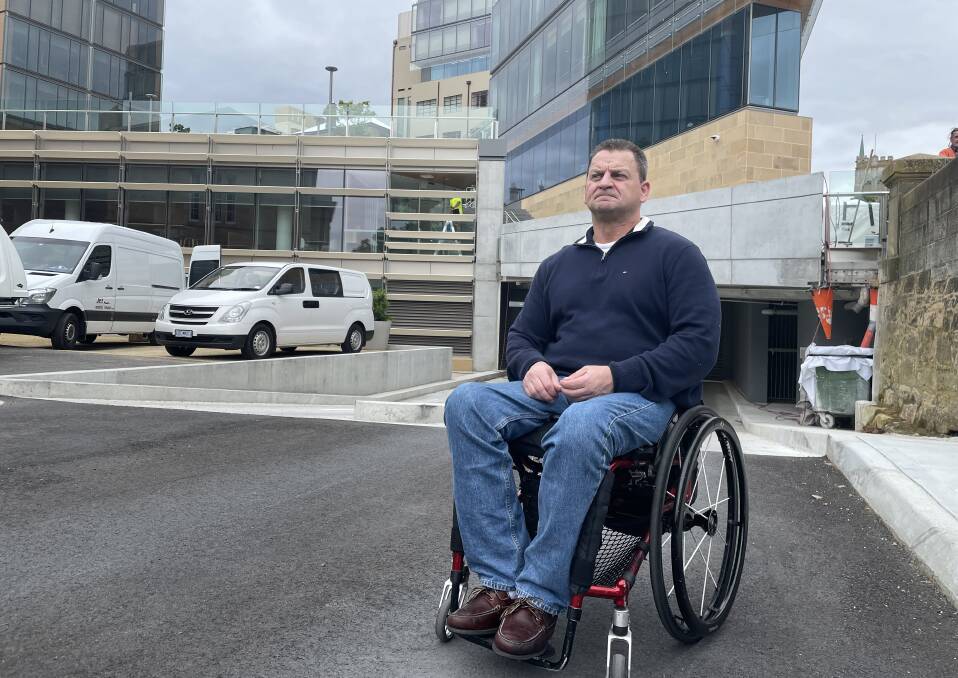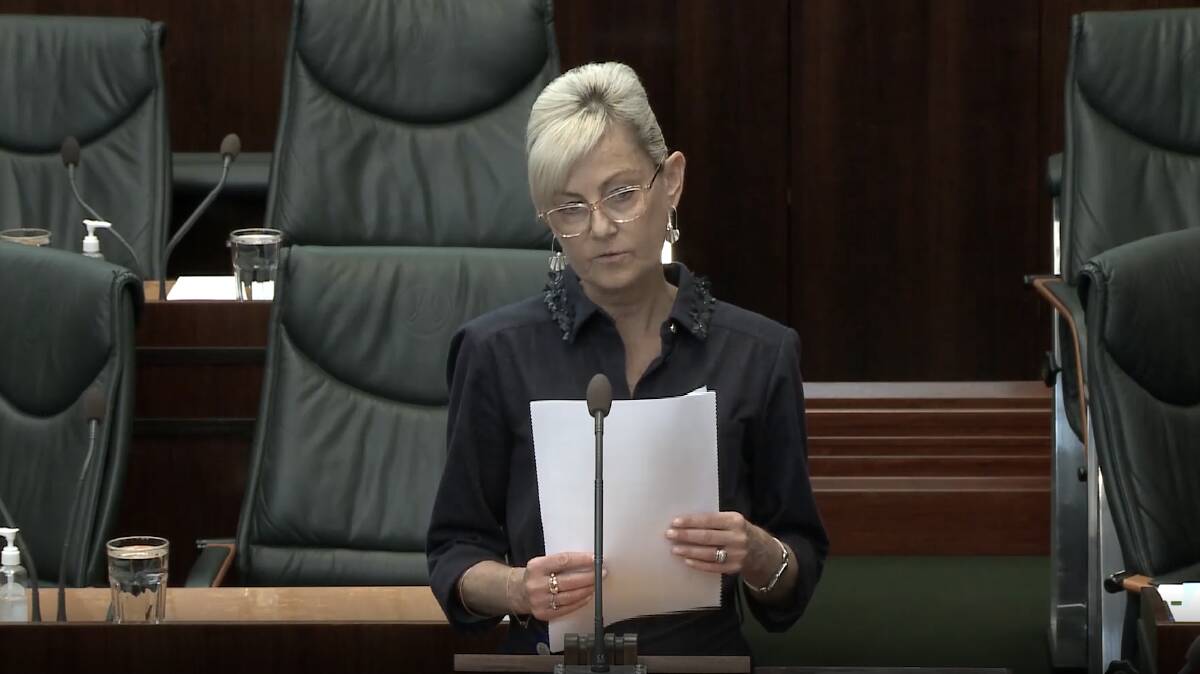
All Australian states have intervened in a High Court case that centres on a Tasmanian man's attempt to both improve disability access to the $200 million Parliament Square redevelopment, and strengthen the state's anti-discrimination laws.
Subscribe now for unlimited access.
$0/
(min cost $0)
or signup to continue reading
Tasmanian Attorney-General Elise Archer was again forced to defend the government's intervention, due to the wording of its notice in court that says it is "in support of the position of the applicants" - the developer, Citta Property Group.
The matter stretches back to 2016 when David Cawthorn filed a discrimination complaint regarding the plans due to there only being public disability access to the main plaza via Davey Street, meaning a several-hundred-metre journey up a hill to get there.
The Anti-Discrimination Tribunal ruled it did not have jurisdiction to hear the complaint due to the potential for a defence under Commonwealth legislation, which therefore threatened an array of discrimination grounds in Tasmania.
Mr Cawthorn appealed to the Supreme Court at his own expense, and the full bench ruled unanimously in his favour. The Attorney-General did not intervene at this stage.

Citta then appealed to the High Court, which was when the Attorney-General intervened.
The Tasmanian Greens questioned Ms Archer on the decision, claiming it was improper of the government to take the side of a large developer over a Tasmanian man living with a disability.
But Ms Archer said the government had not taken a side - despite the use of the word "support" in the intervention notice - and that the matter raised a question of law that must be resolved.
"There is important issue currently before the High Court, that is whether the full court's decision of our Supreme Court requires our state's Anti-Discrimination Tribunal to exercise federal judicial power, which may be unconstitutional," she said.
"Left unanswered, state tribunals may routinely exceed their jurisdiction, bringing about confusion, uncertainty and disappointment among parties before them, as well as increased appeals.
"There are important constitutional issues ... involved in this appeal, which as the High Court has noted itself, are of national significance."

Ms Archer cited the Solicitor-General's annual report which stated the Tasmanian case "does not involve an attack on the validity of the Anti-Discrimination Act" and "does not attack the merits of the cases advanced by either party", including Mr Cawthorn's case.
The interventions of NSW and the Commonwealth did not use the term "support".
Mr Cawthorn said his case was not just important for people with a disability to have reasonable access to a public space, but for other mobility-limited people - such as the elderly, and mothers with prams - to have the same right.
His legal counsel, Ben Bartl, said it was vital to ensure Tasmania's Anti-Discrimination Tribunal could hear all matters regarding discrimination, as per its stated purpose.
The development is already well underway, but if the High Court rules in Mr Cawthorn's favour, the matter will be sent back to the Anti-Discrimination Tribunal for its decision. If the tribunal rules in his favour, Citta could be required to retrofit its design to include a disability access lift near a long section of stairs off Murray Street.
The matter is likely to be heard in February or March.
What do you think? Send us a letter to the editor:
Our journalists work hard to provide local, up-to-date news to the community. This is how you can continue to access our trusted content:
- Bookmark www.examiner.com.au
- Make sure you are signed up for our breaking and regular headlines newsletters
- Follow us on Twitter: @examineronline
- Follow us on Instagram: @examineronline
- Follow us on Google News: The Examiner


